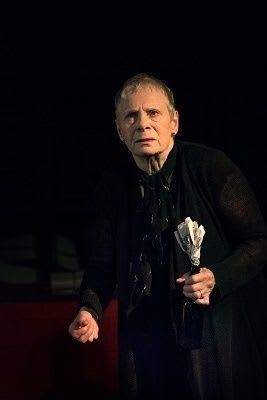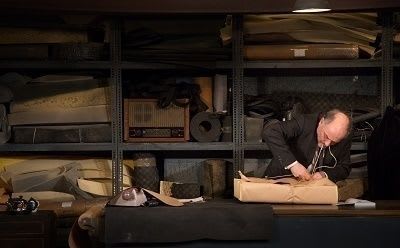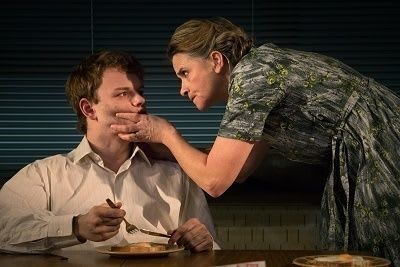Filthy Business is a massively ambitious play, which uses three generations of a working-class Jewish family to take the pulse of the nation at three points between the mid-'60s and the early '80s. As such, it brings to mind the work of both Richard Bean and Arnold Wesker.
The drama achieves its goals by observing the Solomons, a family towered over by a tiny Godfather, who contrarily happens to be their heavily-accented, foul-mouthed matriarch.
In the last couple of years, the British stage has been graced by a series of wonderful performances by women well beyond the traditional retirement age. The latest in this line is Sara Kestelman who relishes the role of fearsome Yetta Solomon.
Given the surname, there was always a prospect of biblical allusions and not only does the lady have the wisdom necessary to bear this name but even uses the good old technique of offering to split a symbolic baby in half. She also regularly plays the immigrant card, a strand of the play that is expanded due to the presence of a pair of “coloured” immigrants.
Yetta presides over Solomon Rubber Co Ltd., established in 1922 and seemingly always in a parlous financial state. It doesn’t help that her two sons Nat and Leo, respectively Louis Hilyer and Dorian Lough, are constantly at war with each other, the former lazy and resentful, the latter busy shtupping (it helps to have a passing knowledge of Yiddish) the staff and planning to set up his own business.
Each of the three acts occurs in a period of crisis when the business is about to go under or be sold. Every time, explosive family arguments spice up proceedings and, on each occasion, it is the increasingly elderly Yetta who attempts to paper over the cracks. However, her methodology is less like a sticking plaster than an explosive device primed to cause maximum damage.
Ryan Craig ensures that comedy is interspersed with social commentary and good old-fashioned family drama, which occasionally threatens to spill over into melodrama but generally escapes just in time.
Repeatedly through the evening, someone seems to have got the better of Yetta. In the first scenes, it is her two sons, although Leo’s Irish wife Eileen played by Mairead McKinley also puts up a strong opposition, primarily to support both her husband and Callum Woodhouse as son Mickey, who would rather be a hairdresser than join the family rubber business.
By the beginning of the 1970s, the fashions have changed, while the second generation is beginning to suffer from injury and illness. This leaves a potential opportunity for Mickey and Edmund Derrington as his friend Monty to move the business on. However, opposition from Nat’s branch, along with some underhanded dealings closer to home, keeps the business within the family.
Even in great old age, as Margaret Thatcher holds sway following the Falklands War, Yetta still has an uncanny knack of finding weak spots in the toughest of men, always rising like a phoenix from the ashes of family disasters. Only when Monty returns a new man does the irrepressible non-Godfather seems close to submission.
On Ashley Martin Davis’s impressively and depressingly detailed, revolving set, Edward Hall ensures that pace is maintained almost throughout a thought-provoking evening that works well as a family drama but should also resonate long after viewers leave the theatre, particularly as they consider issues of today’s hot topic, immigration in the context of family values.


